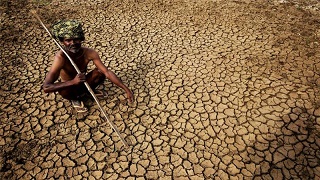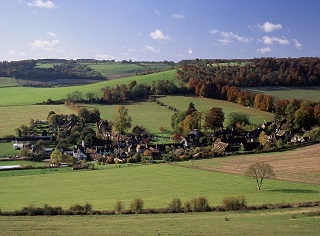Climate Change and Its Death Toll
My colleague Gary Tulie writes from his home in Buckinghamshire, England (pictured left): The point about air conditioning becoming essential with a warming climate is not an exaggeration. Wet Bulb temperature is the temperature a wet thermometer bulb in front of a fan cools to by evaporative cooling – the more humid the air, the closer together measured regular temperature and wet bulb temperature are. Scientists and doctors have calculated that a wet bulb temperature above 35 centigrade can only be survived by humans for a few hours beyond which you die. 
Yes, I’ve read that. Thanks. It’s horrifying.
Meanwhile, over here, we have an entire political party claiming that climate change is a hoax. Remarkably, 16 of the 17 of the original Republicans running for president deny that climate change is real, and the other one believes there’s nothing we can do about it, so there’s no reason to try. Living in this country has become a surreal experience.


A little conversion, 35C is equal to about 95F. At 100% humidity wet bulb and dry bulb temps would be equal. Then to reach a wet bulb temp of 95F with a lower humidity we would have to have a higher temp than 95.
This site: http://www.purdue.edu/newsroom/research/2010/100504HuberLimits.html adds that the duration for sustaining life at this wet bulb temp is about 6 hours. The site also gives a map of how much of the globe will be affected with a 12 deg c (21 deg F) temp rise (roughly 1/2 of the world’s population.)
Another aspect of higher humidity is the difficulty an AC has in reaching a cool temp at a higher humidity compared to when it operates at a lower humidity.
The dry climate alternative to air conditioning, evaporative coolers, become relatively useless when the air becomes too humid.
Some other alternatives to the typical AC is one that uses DC and is intended to be powered by PV panels (probably not very efficient but it may be economical in some situations.)
Solar thermal panels (system) can be used to power an absorption AC system but so far this only seems economical on a commercial scale.
A geothermal heat pump can very efficiently cool a house. It is extremely economic in its operation but generally costly to set up unless you have a near-by lake for a heat sink.
All of this does very little for the general urban or third world environment. For these we might have to ask the glider pilot what produces downdrafts rather than updrafts (besides thunderstorms and energy towers.)